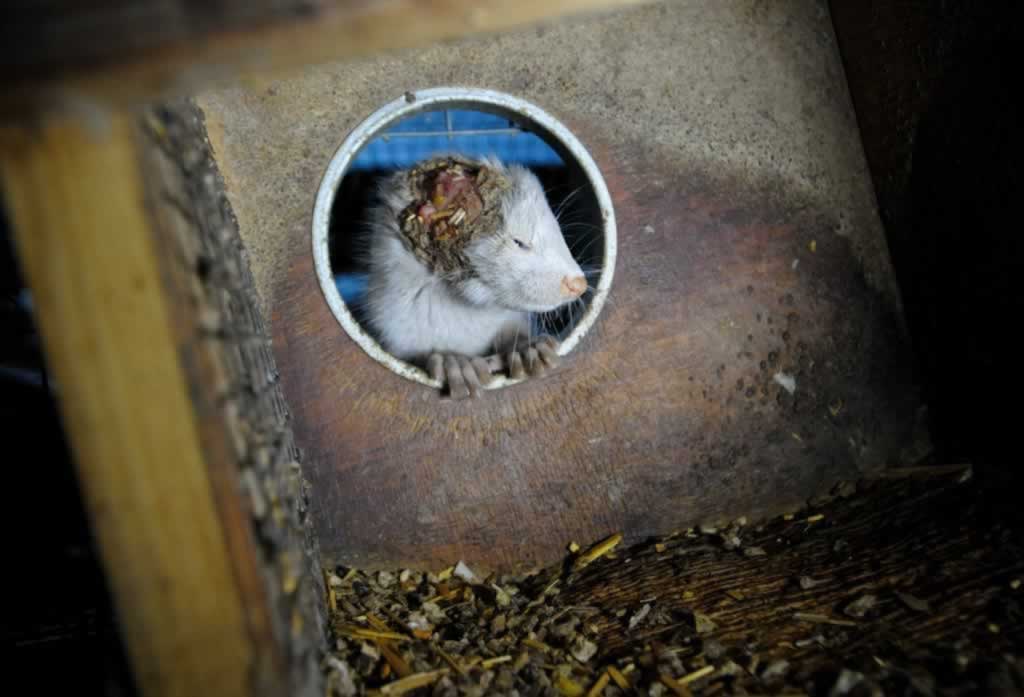Animals Had to Be Euthanized on This Fur Farm—Was Punishment Too Light?
After three years of legal actions, a Québec fur farmer was found guilty on three charges of cruelty to animals—presumably the first conviction of its kind in Canadian history. While this landmark case breaks ground for abused animals, some found the punishments too lenient.
The charges against Jean-Luc Rodier stem from a 2014 complaint made by the Montreal SPCA. According to the probe report, his factory farm held approximately 90 foxes, 10,000 minks, and two dogs captive. As reported by TheStar.com, the SPCA noted that it found dehydrated and malnourished animals living in cramped conditions, adding that several suffering foxes had to be euthanized immediately because of their condition.
Inspectors told the Montreal Gazette that even with masks, the smell of ammonia from the urine was too strong to stomach and that many of the animals had eye infections from the toxic fumes.
Initially, Rodier faced a $10,000 fine and 18 months in prison for each of an initial six counts of cruelty to animals. Later, he was found guilty on only three counts of cruelty to animals, and his sentencing was significantly reduced to a $5,000 fine, 75 hours of community service, and a 15-year ban on harboring animals, with the exception of minks—allowing him to keep his hell farm open. Even though human institutions completely disregard nonhuman lives, animals deserve justice.
Fur farmers must be held accountable for the horrific torment that they cause animals.
Every year, millions of animals are confined to cramped, filthy cages before being drowned, gassed, beaten to death, strangled, electrocuted, and even skinned alive in order to produce fur coats, collars, and cuffs. If animals in cages die, their terrified and often starving cagemates may eat their bodies in a desperate attempt to stay alive. This abuse is wanton and inevitable on fur farms, as sentient beings are treated as mere objects and robbed of their autonomy.
In a sadistic irony, the crowding and confinement on fur farms is especially distressing to minks—solitary animals who may occupy up to 2,500 acres of wetland habitat in the wild. The anguish and frustration of life in a cage leads many to self-mutilate—biting at their skin, tails, and feet—and frantically pace and circle endlessly. Zoologists at Oxford University who studied captive minks found that despite generations of captive breeding for the fur industry, these animals haven’t been domesticated and suffer greatly in captivity, especially if they aren’t given the opportunity to swim.

Help Create a Fur-Free World Today
If dogs or cats in the United States were abused as hideously as those typically killed for their fur, everyone involved would be imprisoned on felony cruelty-to-animals charges. Killing sentient beings for something as trivial as a piece of clothing simply has no place in modern society.
Instead of waiting for the law to punish fur farmers, we can all take action against animal abusers right now with our wallets. Always buy only cruelty-free clothing and other items, and leave fur out of your closet.

